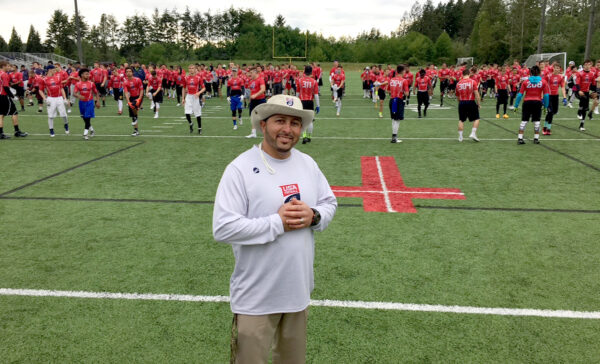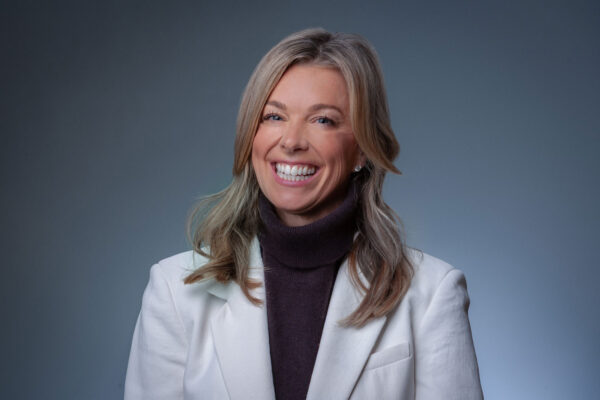As the final weeks of winter quarter were moved to a remote learning environment because of the coronavirus outbreak, faculty and students at the University of Washington Bothell had to find new ways to complete their coursework and classes.
For many final capstone projects, for example, in-person presentations had to move to video using teleconferencing software.
Despite the last-minute change, the results at the School of STEM’s Student Research Symposium on March 20 were a crowd-pleasing success. The biology students’ presentations had faculty members applauding — not only for students successfully pulling it off but also for the quality of their work.
Sharing their research
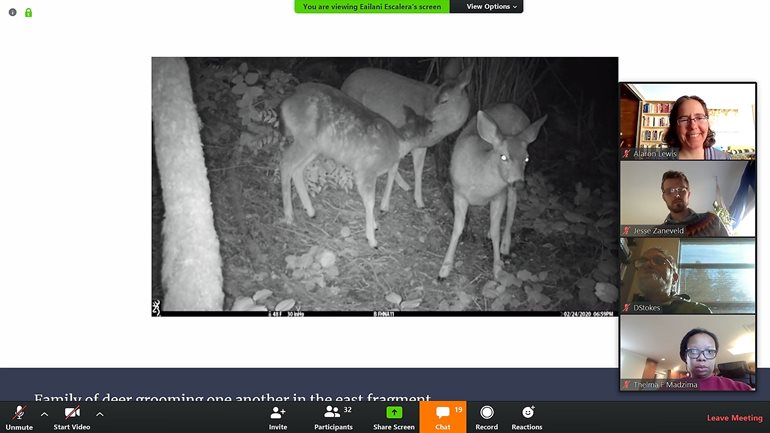
at it went so well,” said Assistant Professor Thelma Madzima, who along with Professor David Stokes and Assistant Professor Jesse Zaneveld were faculty advisers for the projects.
Madzima’s students presented a project related to her research on how maize adapts to environmental changes such as drought.
Stokes’ student research teams had projects cataloguing wildlife and analyzing their movements in St. Edward State Park and Juanita Woodlands Park. Their presentations included photos taken by remote cameras showing deer, bobcat, raccoon, opossums, coyotes and feral cats.
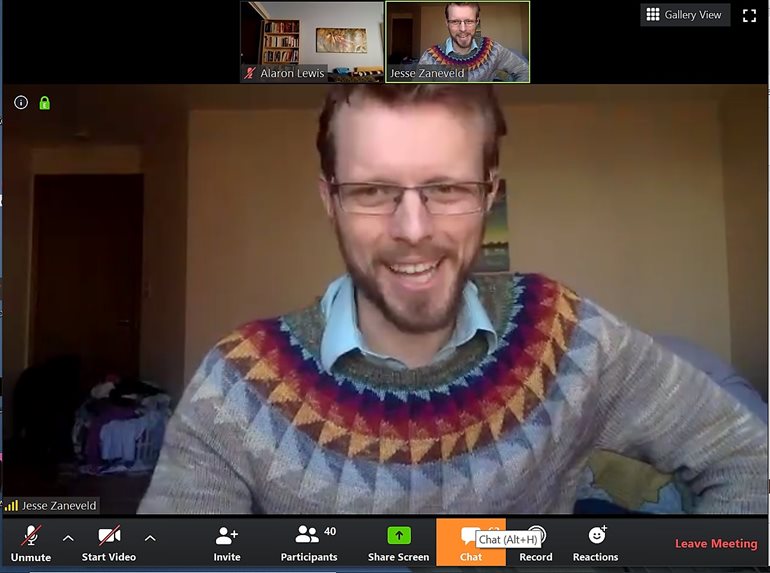
Zaneveld’s students presented projects related to his research with corals and coral reef microbiology, especially in light of climate change.
An independent study student of Assistant Professor Peter Anderson’s presented research on Helicobacter pylori, the bacteria commonly linked to gastric ulcers.
In addition to the advisers, there were more than 30 other participants in the videoconference who made comments or asked questions in a “chat” function, including Professor Marc Servetnick, Senior Lecturer Bryan White, Assistant Professor Doug Wacker, Lecturer Michele Price, Lecturer Salwa Al-Noori and Senior Lecturer Jeff Jensen, all in the Division of Biological Sciences.
Taking advantage of technology
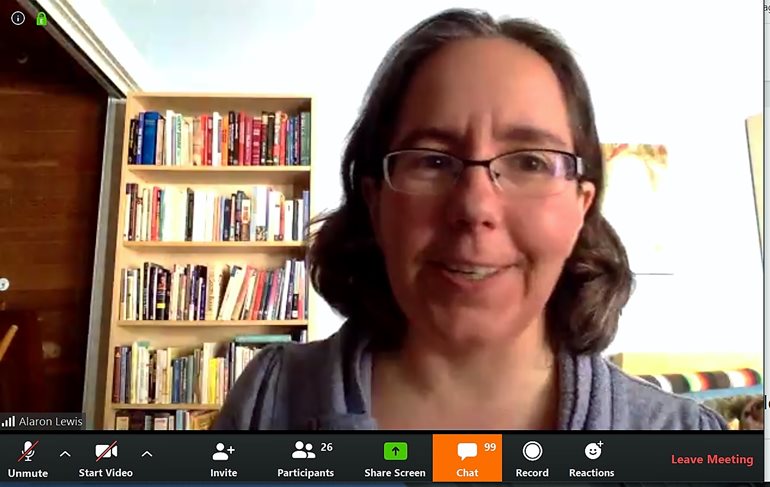
The session was moderated and kept on schedule by Senior Lecturer Alaron Lewis, acting chair of the Biological Sciences Division of the School of STEM, and several faculty members said having her emcee the presentations was a big factor in their students’ success.
She had students introduce themselves at the beginning to check their sound levels, and she posed the faculty questions to the students.
Lewis did wonder how she might do a better job as timekeeper next time — without adding pressure on students — and thought she might just hold up a “Five Minutes” warning sign.
“I think the event went very well,” said Lewis. “The students were all really well prepared with both their presentations, and their readiness for this new technology.
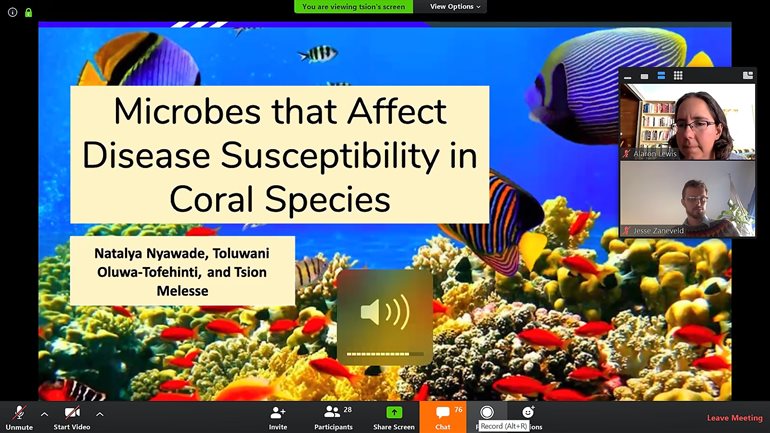
“My favorite last-minute-addition,” she said, “was a clap-track that allowed us to have ‘thunderous applause’ without having to un-mute everyone’s mic. Although I missed the in-person interaction, it was still great to have the chance to ‘gather’ and see the fruit of everyone’s labor.”
Servetnick, interim dean of the School of STEM, said one of the members of the STEM Advisory Board (who are usually unable to attend these symposia) was in attendance.
“I realized that presenting this over Zoom allows people to ‘attend’ who would not normally be able to come,” he said.
